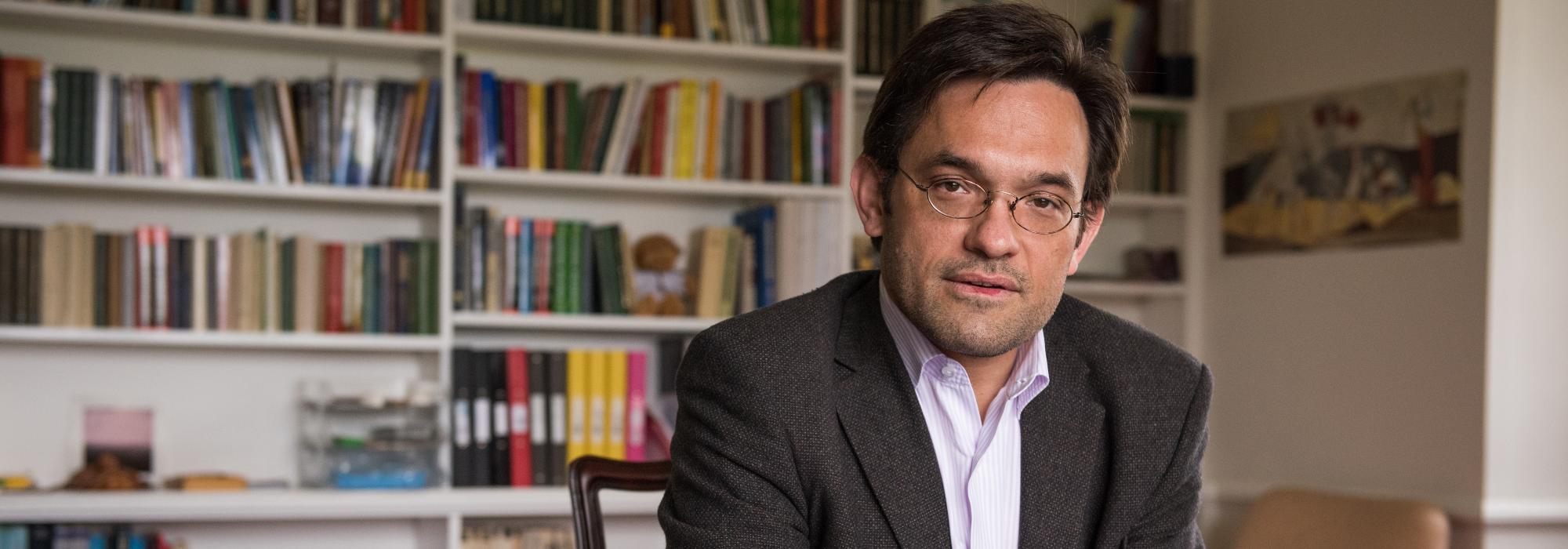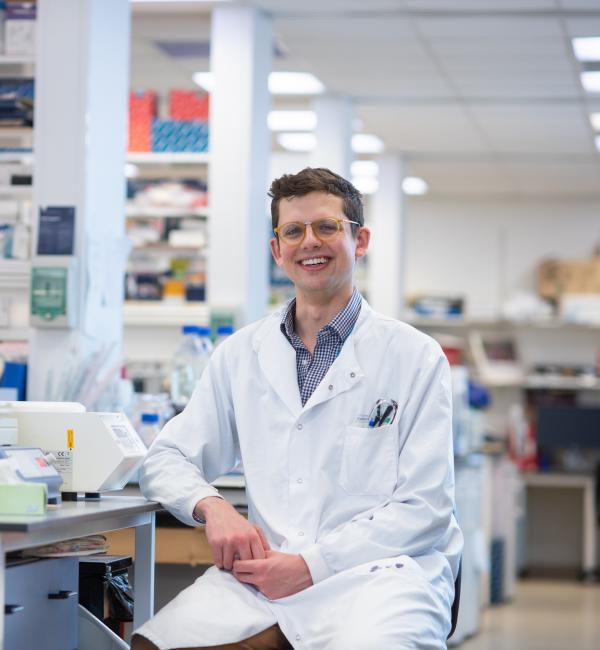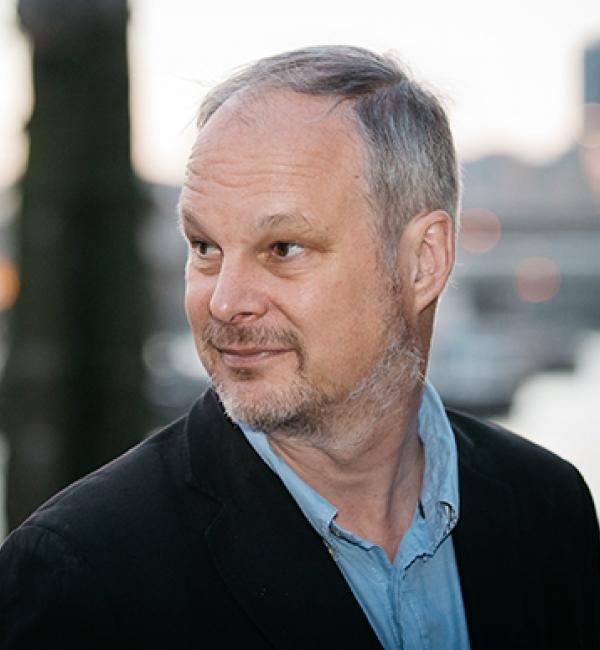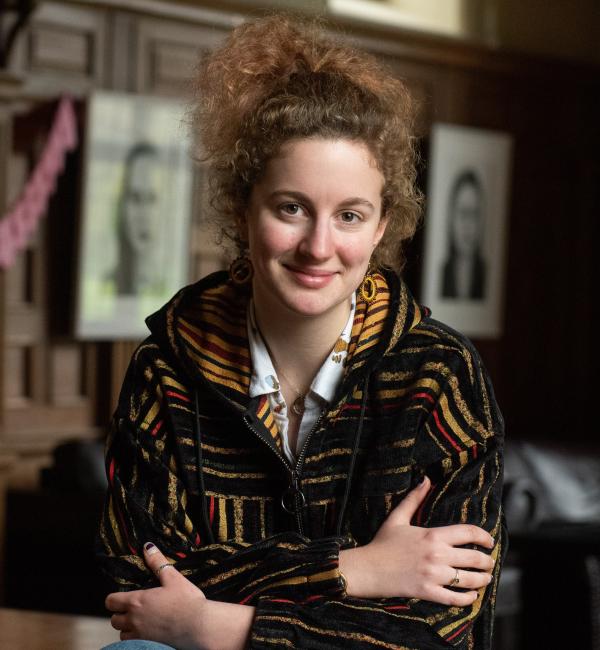
Safeguarding the Tutorial System: A Physics tutor’s view
The Tutorial System, with its regular tutorials – that close teaching contact between expert in the field and student – lies at the heart of Merton’s academic excellence. In addition to their formal teaching responsibilities, our Tutors provide pastoral support for students and encourage a thriving intellectual culture around their subject. For Merton, it is a priority to secure endowment, through philanthropy, for at least one Tutorship in each subject and, longer term, for all our tutorial posts. Thanks to our 750th Anniversary appeal and the generosity of donors, the College has already been able to endow a range of tutorships in subjects such as Law, Chemistry, Economics, History and Music.
An appeal is currently underway to establish a Tutorship in Physics in memory of Professor Michael Baker, Merton’s first Physics Fellow. We spoke to Professor Alex Schekochihin, one of Merton’s three Tutors in Physics, to hear his views on the importance of the Tutorial System to the College in general and to Physics in particular.
Professor Schekochihin has no doubt that the Tutorial System plays a decisive part in Merton’s international reputation as an academic institution. "Merton is very serious about the Tutorial System, because it is serious about its students. The ethos among the students and the tutors is to work hard and focus on academic achievement; this culture propagates itself from one generation of students to the next. It’s not all about exam results: the College genuinely cares about the intellectual development of its students – when we succeed in our task, they learn to think in a creative, informed and structured way."
Places like Merton are where intellectual civilisation is forged
"It’s unusual for a college to have three Physics Fellows, but Merton does, so we almost never outsource the teaching of our students. That’s very important, because it means we have an integrated community around teaching in the College.
"It’s a joint enterprise. The tutors give tutorials; and we have a large group of graduate students and Junior Research Fellows who act as mentors to undergraduates and provide valuable support to tutors with teaching. This gives undergraduates a variety of perspectives and opportunities for learning."
All these aspects of the Tutorial System engender a sense of community. Another gathering point is the Ockham Lecture – a termly event, held since 2009, at which all the Merton physicists come together. "The idea was to have a flashpoint event every term – an intellectual event, with a high-profile speaker – where the whole physics community would gather. About 50 people turn up each time, which is very large for a single-subject community in a college."
Fusion energy is a realistic medium-term prospect. It would be revolutionary
Professor Schekochihin is a theoretical physicist, and works on plasma physics and astrophysics. Universal concepts learned in thinking about astrophysical phenomena often find application in the laboratory: for example, investigating how to confine very hot plasma in a magnetic cage – a key challenge in the quest for a sustainable energy source, fusion energy. "Fusion energy is a realistic medium-term prospect. It would provide a near-infinite and clean energy source. Getting that would be revolutionary."
He stresses the importance of financial support to the security of the Tutorial System, believing that, in each subject, there should be at least one Tutor who is supported by a dedicated endowment fund. This is Merton’s aim too. Although none of Merton’s Tutorships in Physics is yet endowed at the College level, the launch of the Michael Baker Tutorship appeal will change that.
Professor Michael Baker, Emeritus Fellow, died in 2017, leaving a small fund for the Ockham Lectures and substantial seed funding towards tutorial teaching at Merton. An endowed Tutorship in Physics would be a fitting commemoration of Professor Baker, and would safeguard the position for future generations.
"Civilisation is a fragile thing. Places like Merton are where intellectual civilisation is forged. They appear to be very old and venerable and unassailable. But we are extraordinarily dependent on the whims and moods of the society and its governments. In many respects, the way we do things – the Tutorial System, the individual attention to each student – is very counter-trend. If you started a new institution today, you would be unlikely to be allowed to do it like this: it would be seen as 'inefficient' in the context of mass production of everything, including education.
"But independent, creative and well-trained minds cannot be produced en masse – they require this nurturing that the Tutorial System makes possible. I have a sense of the fragility of all this; it’s so easy to break and would be impossible to recover. This system will only survive long-term if it’s independently funded."
The Tutorial System is precious, but expensive. Education doesn’t get better than this
He compares the approach with that of the College’s Founder, who set up an institution rather than having a specific ‘deliverable’ in mind. "You can invest money in specific projects, or you can invest money in institutions, as Walter de Merton did. He realised that if you put certain elements in place, then good things happen. If you have the best people, make them comfortable, get them to talk to each other, and learn with each other, then you get great results, though you don’t know in advance what those would be.
"The Tutorial System is a good example of this. It’s precious, but expensive, and not very widely practised elsewhere. Everything is 'hand-made'. When it succeeds—and it does succeed, again and again—education doesn’t get better than this."
- This article appears in With Our Thanks, Merton's annual Donor Report
- Make a gift




